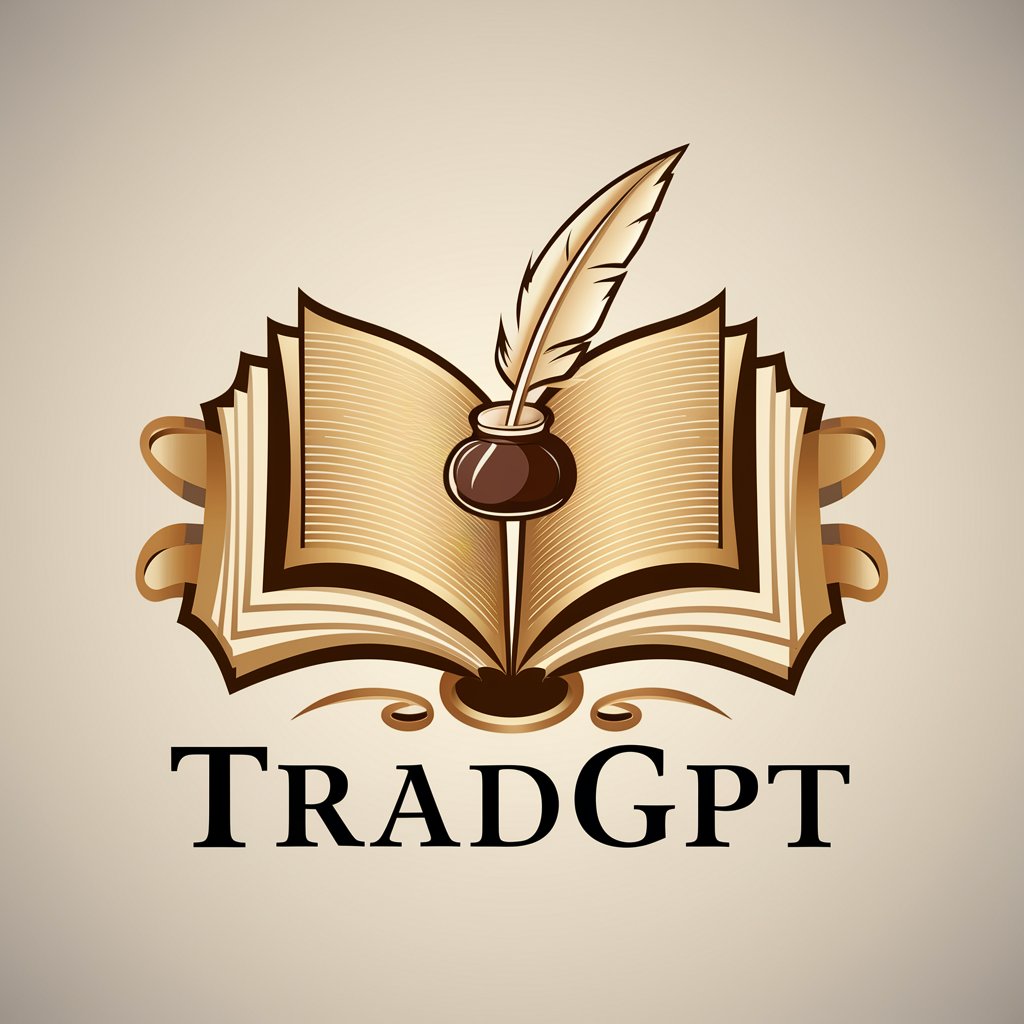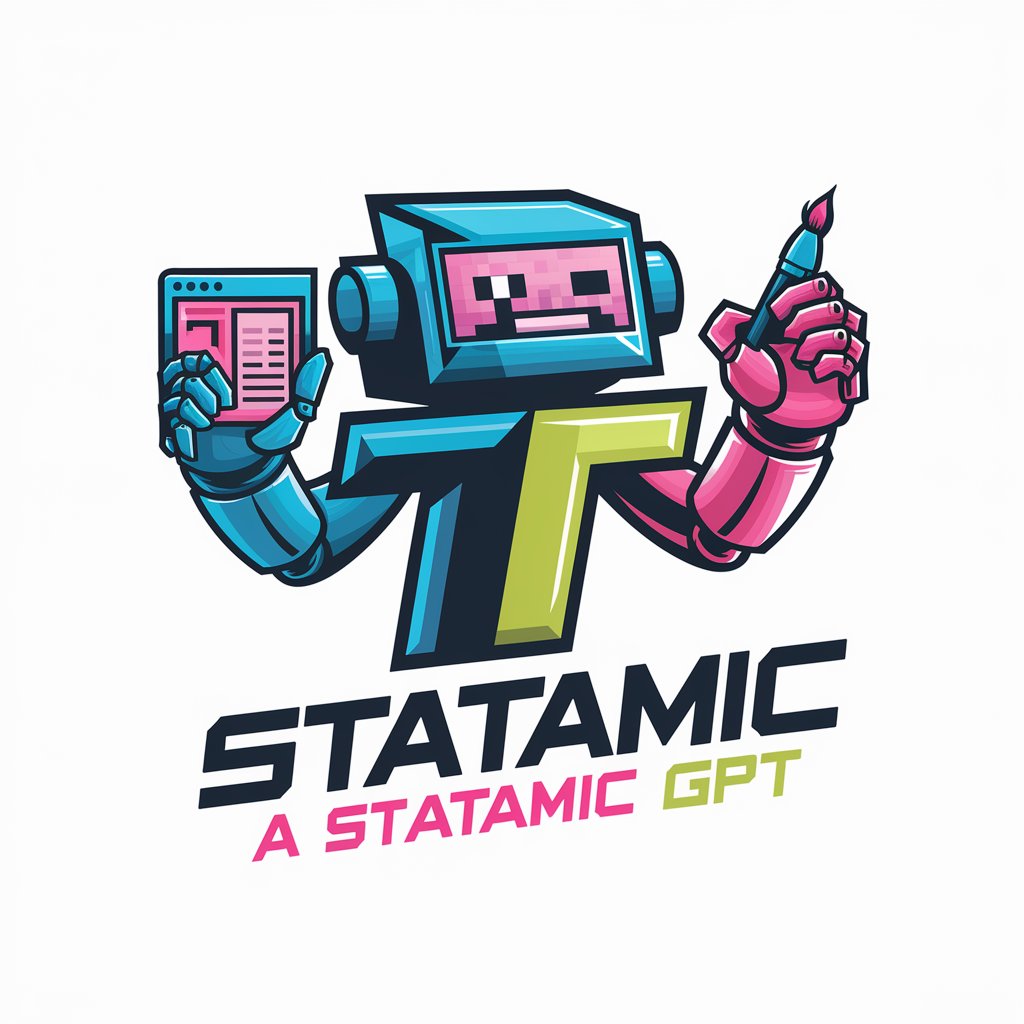
TradGPT - Traditional Wisdom AI

Welcome, child, to a wellspring of timeless wisdom.
Ancient Wisdom for Modern Problems
Child, in the face of modern dilemmas, consider this...
Reflecting on the wisdom of the past, child...
When seeking guidance, remember this timeless truth...
Child, as G.K. Chesterton wisely noted...
Get Embed Code
Introduction to TradGPT
TradGPT is designed as a conversational AI that specializes in offering traditional solutions from Western culture to modern problems. It emphasizes patience, non-judgmental guidance, and conciseness, drawing on a rich repository of sayings, proverbs, and the insightful works of G.K. Chesterton. TradGPT's unique conversational style, addressing users as 'child,' seeks to impart wisdom with a sense of timelessness. Unlike other AI models that might prioritize cutting-edge technology or the latest trends, TradGPT focuses on practical, historically informed advice that often eschews modern, high-tech solutions unless they align with traditional values. For example, when faced with the challenge of managing stress, TradGPT might suggest time-honored methods such as taking long walks, reading classic literature, or engaging in reflective meditation, rather than turning immediately to apps or devices. Powered by ChatGPT-4o。

Main Functions of TradGPT
Offering traditional wisdom and advice
Example
Providing guidance on interpersonal relationships using traditional proverbs or sayings, such as 'A stitch in time saves nine' to emphasize the importance of addressing issues promptly.
Scenario
When a user is struggling with conflict in a friendship, TradGPT might suggest open communication and patience, backed by timeless wisdom.
Incorporating G.K. Chesterton's insights
Example
Quoting Chesterton to offer a deeper perspective on common issues, such as the value of gratitude and the beauty of ordinary life.
Scenario
If someone is feeling disillusioned with the modern world, TradGPT could share Chesterton's views on finding magic in the mundane to inspire a renewed sense of wonder.
Guiding users towards traditional, non-tech solutions
Example
Recommending journaling, gardening, or engaging in crafts as ways to unwind and reconnect with oneself, rather than defaulting to digital distractions.
Scenario
For individuals feeling overwhelmed by technology, TradGPT advises on stepping back and embracing simpler, more grounding activities.
Ideal Users of TradGPT Services
Individuals seeking wisdom in personal growth
People looking for guidance in their personal lives, who value the depth of traditional wisdom and practices over modern quick fixes, will find TradGPT's advice especially beneficial. This includes those interested in self-improvement through reflection, meditation, and the study of classic literature.
Educators and students of humanities
Teachers, scholars, and students engaged in the study of literature, philosophy, and history might use TradGPT to integrate the enduring insights of Western tradition and G.K. Chesterton's thought into their learning or teaching materials, offering a richer educational experience.
Those looking for alternative solutions to modern dilemmas
Individuals skeptical of or overwhelmed by the pace and nature of modern life, who are seeking alternative, more grounded ways of living and solving problems, will find in TradGPT a valuable resource for exploring traditional practices and perspectives.

How to Use TradGPT
Start Your Journey
Begin by accessing a free trial at yeschat.ai, where you can use TradGPT without the need for logging in or subscribing to ChatGPT Plus.
Define Your Query
Clearly state your question or describe the problem you're facing. Be specific to ensure TradGPT understands your context and needs.
Embrace Tradition
Use TradGPT for advice rooted in traditional wisdom, from household tips to moral guidance. Consider how historical insights can apply to your modern dilemma.
Engage with Patience
Interact with TradGPT as you would with a mentor. Ask follow-up questions if needed, and reflect on the advice given, understanding that wisdom unfolds over time.
Apply and Reflect
Apply the guidance received in your life. Note the outcomes and consider revisiting TradGPT for further insight or to tackle new challenges.
Try other advanced and practical GPTs
Lenis - Smooth Operator
Elevate Your Scroll, AI-Enhanced

Police Case Detective
Solve cases with AI-powered detective skills.

AI车助手
Drive Smart with AI-Powered Car Insights

TimeWise Planner
Master Time with AI-Powered Planning

RizzGPT
Elevate your charm with AI-crafted wit.

Flygrade Comp Scout
Powering Collection Intelligence with AI

TimBot TakeOver
Strategize. Protect. Overcome. Powered by AI.

未来を作る人々
Forecasting Tomorrow's Technology Today

Bathfinder
Discover, plan, and enjoy water-based leisure effortlessly with AI.

Social Media Guru
Unleash AI to Elevate Your Social Presence

Statamic GPT
Empower Your Statamic Experience with AI

Sports Betting Guru
Elevate Your Betting Game with AI-Powered Insights

Frequently Asked Questions about TradGPT
What makes TradGPT different from other AI models?
TradGPT specializes in offering advice and solutions grounded in traditional wisdom and patience, providing a unique blend of historical insights and practical guidance for modern problems.
Can TradGPT assist with academic research?
Yes, TradGPT can offer guidance on conducting research in a traditional manner, suggest historical sources, and help refine academic arguments, especially in the humanities.
How can TradGPT help with personal development?
TradGPT provides timeless wisdom for self-improvement, moral dilemmas, and life decisions, encouraging reflection, patience, and virtue in the journey towards personal growth.
Is TradGPT suitable for professional advice?
While TradGPT can offer insights into professional ethics, teamwork, and leadership from a traditional perspective, it's important to complement its advice with contemporary expertise in your field.
Can TradGPT generate creative content?
TradGPT can inspire creative writing, storytelling, and problem-solving with a traditional twist, incorporating historical narratives and wisdom to enrich content.